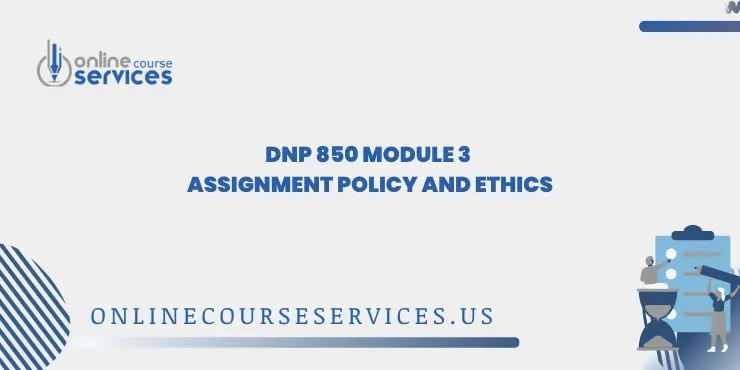- DNP 850 Module 3 Assignment Policy and Ethics.
Policy and Ethics
Central line-associated bloodstream infections (CLABSIs) are one of the leading causes of complications and deaths among hospitalized patients, especially in critical care settings, such as the ICUs. Those infections surge up simultaneously as microorganisms or infections are delivered into the circulatory system via a central line, a tube inserted right into a primary vein for infusing a solution, drawing blood, or measuring a heartbeat. In the DNP 850 Module three project insurance and Ethics context, appreciating and addressing these challenges is crucial to improving patient protection and aligning practices with ethical healthcare requirements.
As a professional in Nursing Exercises (DNP) scholar, I venture to lower CLABSIs in the Roseland network disaster health facility ICU. This evaluation intends to observe nursing ethics for my project, the pertinent regions of nursing ethics, adhering to moral requirements, and displaying the beneficence of others regarding my DNP challenge.
Nursing Ethics and Their Role in My DNP Project
- Ethical Principles in Nursing
Nursing ethics are diverse requirements, guidelines, and values governing nursing practice. They include self-energy of idea, consummates, keeping off damage, sensibility, trustworthiness, integrity, and genuineness. The following recommendations are moral standards that may be essential to my DNP undertaking in addressing the problem of CLABSIs.
Autonomy
It’s imperative to understand patients’ right to self-determination, with the whole thing thinking about through allowing them to choose their remedy. This includes instructing sufferers and families about the dangers of central lines and helping them make choices regarding the region and utilization of those lines.
Beneficence
This precept includes making preferences and taking actions that significantly impact patients’ lives (Selby et al., 2021). In my mission, CLABSIs could be faded, with a view to saving sufferers’ lives and enhancing the quality of care.
Non-maleficence
This principle is based on the non-damage principle of licenses. In unique phrases, it’s going to prevent damage by reducing the incidence of CLABSIs through the use of amassing evidence-based practices.
Justice
All sufferers need to accept sincere treatment that is free from discrimination. The intervention proposed in the task spare time activities ensures eac patients receive essentially indistinguishable notable care, irrespective of their character and state of affairs.
Fidelity
This principle consists of honoring liabilities and commitments. The cause is that by committing to diminishing CLABSIs, I can satisfy the promise of safeguarded and practical care.
Veracity
This includes being truthful with patients and with excellent medical experts. It is imperative to underline proper infection costs and conduct watchful examinations of venture interest (Selby et al., 2021).
Nursing Ethics for My DNP Practice Problem
Adopting and retaining moral ideas in my DNP assignment consists of a few key techniques:
- Ethical Practices in Implementation
Education and Training
All ICU employees need to understand the danger of CLABSIs and the measures to be taken to prevent them. Those measures encompass training drills and thoughtfulness concerning continuing methodologies and designs.
Evidence-Based Practice
Coping with practices maintained through research is the primary foundation for the presumption of CLABSIs. This will be done by the following modern investigations and suggestions from the CDC, WHO, and other authentically well-knowledgeable specialists (Buetti et al., 2022).
Patient and Family Involvement
The care cycle calls for the involvement of the patients and their households to uphold ethical necessities. This informs them of the blessings and impediments of getting central traces and attracting them to severe energy regions for spent entryways.
Interdisciplinary Collaboration
Expert clinical caretakers are certainly one type of healthcare-informed authority and infection management expert. I want to make the project interesting and valuable. All my buddies have character specializations and might provide specific points of view on the most effective approach to decreasing CLABSIs.
Conclusion
The elimination of CLABSIs in the Roseland Community Crisis Clinic ICU is a fair intervention that straightforwardly addresses the principles of the nursing profession. From this point of view, since patient security, quality of care, and responsibility are intertwined, the project’s primary goal is to ensure that patients search for the best treatment to improve the quality of care and outcomes.
Some of the crucial activities that should be finished to improve the project include the following: Educating and practicing ethical principles, involving patients, interdisciplinary collaboration, monitoring, and reporting are valuable in the solid execution of the projects. Finally, the project relies on the chance of beneficence, meaning that all embraced practices are unmistakably appropriate for patients, staff, and the community. Subsequently, this project should provide everyone with the opportunity for a safer and more supportive healthcare setting.

